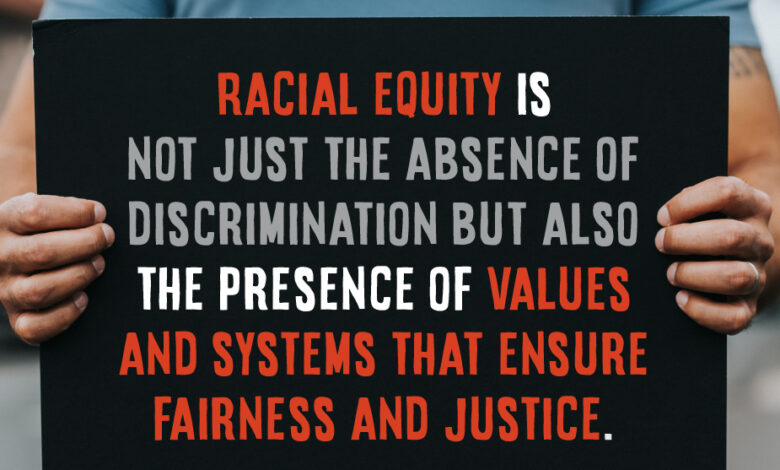Racial justice and equality

In recent years, the issue of racial justice and equality have become increasingly prominent in public discourse. The killing of George Floyd and the subsequent protests that swept the United States and other parts of the world have highlighted the ongoing struggle for racial justice and equality. In this article, we will explore the history of racial discrimination and its impact on communities of color, the current state of racial justice and equality, and what we can do to create a more just and equitable society.
Introduction
In this section, we will provide an overview of the article and discuss the importance of racial justice and equality in our society.
What is Racial Justice and Equality?
Racial justice and equality refer to the fair treatment of all individuals regardless of their race, ethnicity, or cultural background. It means that everyone should have equal access to opportunities, resources, and benefits without being discriminated against based on their race.
Why is Racial Justice and Equality Important?
Racial discrimination and inequality have had a long-standing impact on individuals and communities of color. It has affected their economic, social, and political status and led to a significant disparity in opportunities and resources. The issue of racial justice and equality is essential to ensure that everyone is treated fairly and has an equal chance to succeed.
The History of Racial Discrimination
In this section, we will examine the history of racial discrimination and its impact on communities of color.
Slavery and Jim Crow Laws
The history of racial discrimination in the United States dates back to the era of slavery when millions of Africans were forcibly taken from their homes and brought to the Americas to work as slaves. The legacy of slavery continued even after its abolition with the introduction of Jim Crow laws that enforced racial segregation and discrimination against African Americans.
Civil Rights Movement
The Civil Rights Movement of the 1960s marked a significant turning point in the fight for racial justice and equality. The movement, led by figures such as Martin Luther King Jr. and Rosa Parks, aimed to end segregation and discrimination against African Americans and led to significant legal and social changes.
Contemporary Issues
Despite the significant progress made since the Civil Rights Movement, issues of racial discrimination and inequality continue to persist in our society. African Americans and other people of color are still subject to systemic racism, police brutality, and other forms of discrimination.
The Current State of Racial Justice and Equality
In this section, we will discuss the current state of racial justice and equality in our society.
Systemic Racism
Systemic racism refers to the ways in which racial discrimination is embedded in social, economic, and political institutions. It is manifested in policies and practices that perpetuate racial inequality and discrimination.
Police Brutality
The issue of police brutality has received significant attention in recent years, particularly following the killing of George Floyd. Police brutality against people of color is a pervasive issue that has led to numerous deaths and injuries.
Economic Inequality
Economic inequality is another significant issue affecting communities of color. It has resulted from historic and ongoing discrimination in education, employment, and housing opportunities, which have led to disparities in income and wealth.
What Can We Do to Create a More Just and Equitable Society?
In this section, we will discuss what we can do as individuals and as a society to create a more just and equitable society.
Acknowledge and Address Systemic Racism
Acknowledging the existence of systemic racism is the first step toward creating a more just and equitable society. We must actively work to dismantle racist policies and practices and replace them with policies that promote equality and justice.
Support Racially Diverse Communities
Supporting racially diverse communities is essential to creating a more just and equitable society.
Educate Ourselves and Others
Education is a powerful tool for creating change. We must educate ourselves and others about the history of racial discrimination and its impact on communities of color. This includes understanding the experiences and perspectives of people from different racial and ethnic backgrounds.
Advocate for Change
Advocacy is an important way to create change in our society. We can advocate for policies and practices that promote racial justice and equality. This can include contacting our elected representatives, participating in protests and demonstrations, and supporting advocacy organizations.
Listen and Learn from Marginalized Communities
Listening to and learning from marginalized communities is essential to creating a more just and equitable society. We must prioritize the voices and experiences of people of color and other marginalized communities, and work to amplify their voices.



